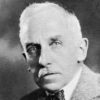I have learned yet again (this has been going on all my life) what folly it is to take anything for granted without examining it skeptically.
Joseph Jacobs (1854-1916) Australian folklorist, literary critic, historian writer
Dark Age Ahead, “Notes and Comments” (2004)
(Source)
Quotations about:
assumption
Note not all quotations have been tagged, so Search may find additional quotes on this topic.
Narrow-mindedness: allowing one’s prejudices to become convictions.
Marcelene Cox (1900-1998) American writer, columnist, aphorist
“Ask Any Woman” column, Ladies’ Home Journal (1944-06)
(Source)
They had all been brought up, as we still are, to believe in “the deterrent.” Firm resolve, a readiness to threaten war, would avert war itself. Some Power would always give way. This usually happened, indeed happened so often that the wisdom of the method seemed sure. In 1914 all the Powers, for different reasons, expected the yielding to come from the other side.
A. J. P. Taylor (1906-1990) British historian, journalist, broadcaster [Alan John Percivale Taylor]
“What Else Indeed?” New York Review of Books (5 Aug 1965)
(Source)
But, however tardily, I nonetheless caught myself and realized I had always devoted my time and attention to people who fascinated me and were pleasant, who engaged my sympathy, and that as a result I was seeing society like the Moon, always from one side.
Alexander Solzhenitsen (1918-2008) Russian novelist, emigre [Aleksandr Isayevich Solzhenitsyn]
The Gulag Archipelago, Vol. 2 (1974) [tr. Whitney]
(Source)
You see, a philosopher is a sort of intellectual yokel who gawks at things that sensible people take for granted.
Alan Watts (1915-1973) Anglo-American philosopher, writer
“The Relevance of Oriental Philosophy” (c. 1964)
(Source)
Collected in Eastern Wisdom, Modern Life, ch. 6 (2006). Variant: "A philosopher is a sort of intellectual yokel who gawks at things, like existence, that ordinary people take for granted."
Of all the ridiculous expressions people use — and people use a great many ridiculous expressions — one of the most ridiculous is “No news is good news.” “No news is good news” simply means that if you don’t hear from someone, everything is probably fine, and you can see at once why this expression makes such little sense because everything being fine is only one of many, many reasons why someone may not contact you. Perhaps they are tied up. Maybe they are surrounded by fierce weasels, or perhaps they are wedged tightly between two refrigerators and cannot get themselves out. The expression might as well be changed to “no news is bad news,” except that people may not be able to contact you because they have just been crowned king or are competing in a gymnastics tournament. The point is that there is no way to know why someone has not contacted you until they contact you and explain themselves. For this reason, the sensible expression would be “no news is no news,” except that it is so obvious that it is hardly an expression at all.
There is no such thing as absolute certainty, but there is assurance sufficient for the purposes of human life.
John Stuart Mill (1806-1873) English philosopher and economist
On Liberty, ch. 2 “Of the Liberty of Thought and Discussion” (1959)
(Source)
Mill is actually describing an argument he goes on to counter.
Assumptions are dangerous things to make, and like all dangerous things to make — bombs for instance, or strawberry shortcake — if you make even the tiniest mistake you can find yourself in terrible trouble. Making assumptions simply means believing things are a certain way with little or no evidence that shows you are correct, and you can see how this can lead to terrible trouble. For instance, one morning you might wake up and make the assumption that your bed was in the same place that it always was, even though you would have no real evidence that this was so. But when you got out of your bed, you might discover that it has floated out to sea, and now you would be in terrible trouble all because of the incorrect assumption that you’d made. You can see that it is better not to make too many assumptions, particularly in the morning.
Few of us take the pains to study the origin of our cherished convictions; indeed, we have a natural repugnance to so doing. We like to continue to believe what we have been accustomed to accept as true, and the resentment aroused when doubt is cast upon any of our assumptions leads us to seek every manner of excuse for clinging to them. The result is that most of our so-called reasoning consists in finding arguments for going on believing as we already do.
James Harvey Robinson (1863-1936) American historian and educator
The Mind in the Making, ch. 4 “Rationalizing” (1921)
(Source)
We are all more blind to what we have than to what we have not.
Audre Lorde (1934-1992) American writer, feminist, civil rights activist
“Notes from a Trip to Russia,” Sister Outsider (1984)
(Source)
This is how humans are: We question all our beliefs, except for the ones we really believe, and those we never think to question.
It is a good morning exercise for a research scientist to discard a pet hypothesis every day before breakfast. It keeps him young.
Konrad Lorenz (1903-1989) Austrian zoologist, ethologist, ornithologist
On Aggression, ch. 2 (1966)
(Source)
Your assumptions are your windows on the world. Scrub them off every once in a while, or the light won’t come in. If you challenge your own, you won’t be so quick to accept the unchallenged assumptions of others. You’ll be a lot less likely to be caught up in bias or prejudice or be influenced by people who ask you to hand over your brains, your soul, or your money because they have everything all figured out for you.
Alan Alda (b. 1936) American actor [b. Alphonso Joseph D'Abruzzo]
Things I Overheard While Talking to Myself, ch. 2 “Lingering at the Door” (2007)
(Source)
Originally given at the commencement speech at Connecticut College in May, 1980, where his daughter Eve was graduating.
To avoid the various foolish opinions to which mankind are prone, no superhuman genius is required. A few simple rules will keep you, not from all error, but from silly error. If the matter is one that can be settled by observation, make the observation yourself. Aristotle could have avoided the mistake of thinking that women have fewer teeth than men, by the simple device of asking Mrs. Aristotle to keep her mouth open while he counted. He did not do so because he thought he knew. Thinking that you know when in fact you don’t is a fatal mistake, to which we are all prone. I believe myself that hedgehogs eat black beetles, because I have been told that they do; but if I were writing a book on the habits of hedgehogs, I should not commit myself until I had seen one enjoying this unappetizing diet.
Never ascribe to an opponent motives meaner than your own.
James Barrie (1860-1937) Scottish novelist and dramatist
“Courage,” Rectoral Address, University of St. Andrews, Scotland (1922-05-03)
(Source)
Health is not valued, till Sickness comes.
Thomas Fuller (1654-1734) English physician, preacher, aphorist, writer
Gnomologia: Adages and Proverbs, #2478 (1732)
(Source)
To punish a man because he has committed a crime, or because he is believed, though unjustly, to have committed a crime, is not persecution. To punish a man, because we infer from the nature of some doctrine which he holds, or from the conduct of other persons who hold the same doctrines with him, that he will commit a crime, is persecution, and is, in every case, foolish and wicked.
Thomas Babington Macaulay (1800-1859) English writer and politician
“Hallam’s Constitutional History,” Edinburgh Review (Sep 1828)
(Source)
Review of Henry Hallam, The Constitutional History of England, from the Accession of Henry VII to George II (1827).
The least questioned assumptions are often the most questionable.
Paul Broca (1824-1880) French pathologist, neurosurgeon, anthropologist
“Quelques propositions sur les tumeurs dites cancéreuses” (16 Apr 1849)
Most human beings have an almost infinite capacity for taking things for granted.
Aldous Huxley (1894-1963) English novelist, essayist and critic
“Variations on a Philosopher,” Themes and Variations (1950)
(Source)
In all affairs — love, religion, politics or business — it’s a healthy idea, now and then, to hang a question mark on the things you have long taken for granted.
Bertrand Russell (1872-1970) English mathematician and philosopher
(Attributed)
Widely attributed to Russell, but not found in any of his online published works or cited to any source.
There are numerous variations on this quote, e.g.,
In all affairs it's a healthy idea now and then to hang a question mark on the things you have taken for granted.
And mixes and matches between those two.
Earliest references of long-form quotation I could find:I also found in Alexander Chittick, Social Evolution, "The Evolution of Capital and Labor" (1919), regarding the plight of laborers:
- Readers Digest, "Quotable Quotes" filler (1940-08)
- Forbes, "Thoughts on the Business of Life" (1950-02-01)
They should be taught [...] to take nothing for granted in love, religion, politics, or business.
The combination of taking for granted and the same list of four affair topics seems more than coincidence. Was Chittick riffing off of an unfound Russell comment? Did someone attribute a variation of Chittick's passage to Russell? The answer is unclear.





















